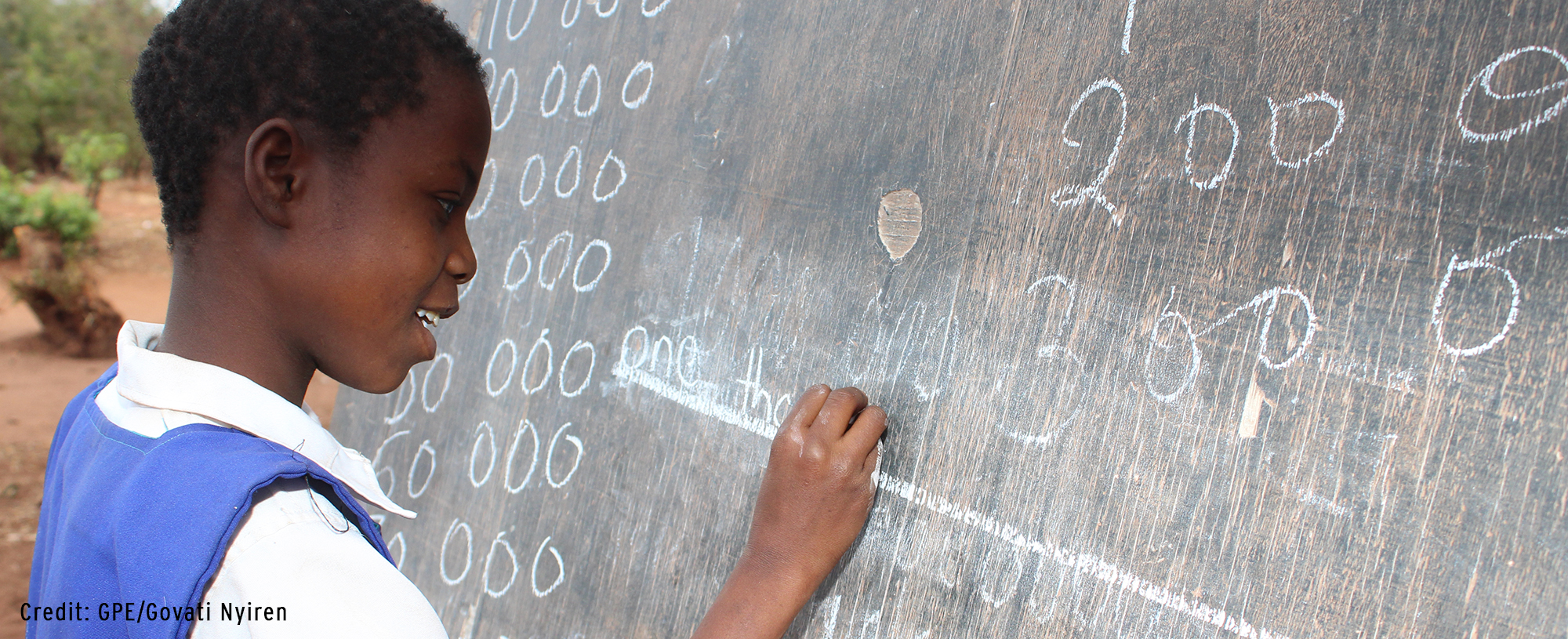When the Classroom is an Unsafe Space: New Initiative to End Gender Violence in Schools
School-related gender-based violence (SRGBV) represents one of the worst forms of gener-based discrimination and requires coordinated, cross-sectoral approaches and responses with a variety of partners across sectors and institutions, at national, regional and global levels.
The number of out of school children around the world fell markedly since 2000, almost by half in many low- and middle-income countries. Yet, gender parity in primary and secondary education continues to persist in many parts of the world. One reason for this is the prevalence of violence in and around schools, also known as school-related gender-based violence (SRGBV).
Over the past decade, recognition of the pervasive nature of SRGBV and its devastating impact has grown. Every day, girls and boys face many forms of physical, sexual, and psychological violence: the sexual victimization of a female student by a peer or teacher; the bullying of one child by another in the schoolyard; and a boy beaten by older boys as a ‘rite of passage’ to adulthood. We now know that the repercussions of SRGBV are serious, leads to an alarming number of out-of-school children, threatens their chances to learn and develop with dignity, and confidence, and threatens the success of future generations.
And yet, too often SRGBV remain undocumented or underreported, by societies as well as by schools themselves. There are many reasons for this, including the tacit tolerance of violence, many victims being too young or vulnerable to report abuse, and the failure of social service systems to respond to and protect children. While the volume of data around violence against children are gradually emerging, there remains little collective evidence to guide countries with the evidence they need to develop effective policies and practices to address SRGBV.

Against this backdrop, UNICEF and the Global Partnership for Education (GPE), have joined forces to launch the End Gender Violence in Schools (EGVS) Initiative (2015-2017), combining research, capacity building, and knowledge exchange to generate the robust evidence base needed to foster effective policies and actions around SRGBV. The End Gender Violence in Schools Initiative is partnering with UCL Institute of Education, the UN Girl’s Education Initiative (UNGEI), and governments and partners in Côte d’Ivoire, Ethiopia, Togo, and Zambia.
Last month, a first major product of this partnership – A Rigorous Review of Global Research Evidence on Policy and Practice on School-Related Gender-Based Violence – was published, showcasing the latest research evidence on approaches to addressing SRGBV. The review found that research efforts around SRGBV to date have tended to focus on short-term, local level interventions with limited attention to policies and policy implementation processes. The most promising interventions are multi-layered and address the links between violence, identities, social and cultural norms, and intersecting structural inequalities. However, how to sustain and institutionalize work on gender and violence in schools less known. Most importantly, the review found that a focus on resources and efforts are needed to build a robust evidence base that supports policy, practice, monitoring, and evaluation at all levels.
Currently, an in-depth research of existing policies and practices is underway in each of the four participating countries to inform the next phase of the End Gender Violence in Schools initiative. The findings from these studies are expected to uncover the major gaps and critical opportunities for better preventing and responding to SRGBV in the respective countries, and based on the findings, the most promising interventions will be promoted for action both at policy and programmatic levels.
To download the full report of the Review of Global Research Evidence, please visit: https://www.unicef.org/education/files/SRGBV_review_FINAL_V1_web_version.pdf
The End Gender Violence in Schools (EGVS) Initiative (2015-2018) is a multi-year collaborative effort under the Global Partnership for Education- Global and Regional Activities with the technical support of UNICEF, UCL-Institute of Education, and UNGEI. The overall aim of the initiative is to develop and promote a common and systematic approach to identification, design, and monitoring of interventions to address SRGBV and contribute to the significant and sustainable reduction of SRGBV in participating countries:
The Initiative focuses on the following three outcomes:
Outcome 1: Partner countries have robust and sustainable processes for identifying and tracking the incidence of SRGBV; and develop and implement effective evidence-based policies and strategies to reduce SRGBV as part of national education policies.
Outcome 2: Partners in target countries have increased institutional and technical capacity to design, implement and monitor SRGBV interventions.
Outcome 3: Global, regional and local actors in partner and across GPE endorsed countries use partnership and advocacy to improve multi-level and multi-sectoral action against SRGBV.


